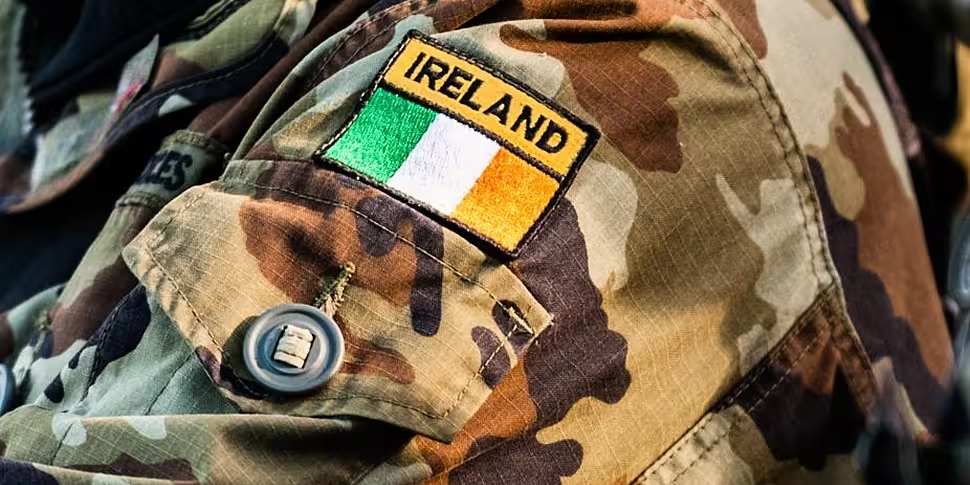A statutory inquiry will be set up into allegations of bullying, harassment and sexual assault in the Defence Forces.
Tánaiste Micheál Martin has described the culture in the Defence Forces as totally unacceptable.
A new IRG-DF report has severely criticised the organisation as "resistant to change, with out-of-date HR policies and procedures and simply not fit-for-purpose in tackling unacceptable behaviour, bullying, discrimination, harassment and sexual harassment."
The Government has agreed to progress its 13 recommendations as a priority.
This includes:
- Establishment of a statutory inquiry to investigate whether there have been serious systemic failures in dealing with individual complaints, including sexual misconduct
- Setting up an External Oversight Body, on a non-statutory basis initially, to increase transparency and accountability
- Urgently reforming the existing mechanisms for making a complaint to restore faith and trust in the complaints process
Legislation will establish an independent complaints mechanism and an External Oversight Body on a statutory basis.
The Defence Act will also be amended, so that all allegations of rape or aggravated sexual assault in the Defence Forces in the State will be referred to An Garda Síochána for investigation.
Currently, the report finds such complaints "may bypass the formal procedures process" and be reported directly to the Military Police.
'Keeping their heads down'
Some women described their own positive experience, despite the toughness of the initial training, and stated that they had not experienced sexual assault or other forms of bullying or harassment.
They attributed this to their "keeping their heads down and batting off inappropriate comments."
However, they also disclosed that they were aware of others who had experienced unacceptable behaviours.
A consistent theme is that some members of the Defence Forces management abuse their positions of power and command in their treatment of subordinates.
The report finds: "Some members of Defence Forces management cross the line between appropriate and inappropriate exercise of military authority.
"This may manifest as trainee soldiers (either enlisted or cadets) being admonished in a threatening way by a superior, thus conveying the idea that the soldier is now owned by the Defence Forces and that the individual is in the total control of the superior".
'Beyond the level necessary'
Interviewees reported experiencing certain abuses of power by those in positions of authority.
This was typified by treatment of more junior ranks in a manner that "went beyond the level perceived as being necessary in order to train or prepare them for the experience of conflict or war."
It involved commissioned officers and non-commissioned officers "degrading and undermining trainees or lower ranks and undermining their entitlement to dignity by engaging in bullying, mobbing, harassment and sexual harassment."
The report found many left the Defence Forces rather than tolerate this behaviour, which all those concerned "knew was beyond that necessary for training and so was likely to be motivated by a desire to hurt and a desire to feel power over another human being."
Women 'maintain two locks on bedroom doors'
Advices were given to female members of the Defence Forces to maintain two locks on their cabin or bedroom doors if there has been an attempt to assault or forcibly enter their sleeping quarters in the past.
Interviewees also reported barricading of quarters to prevent sexual assault, grooming of younger recruits by senior officers, and reported repeated and regular incidents of drinks being spiked by various drugs.
They also reported predatory behaviour targeting women in situations where alcohol was present.
There were reported incidents of "compromising intimate images of female members" being taken by hidden cameras in showers and bathrooms, or pictures taken when women were inebriated and unable to provide informed consent.
'Dangerous situations'
Some members, regardless of their gender or sexual orientation, found themselves in dangerous situations after they were invited to partake in sexual activity by a person who was often of higher rank, and, in some cases, by a person or persons who were under the influence of alcohol and/or drugs.
The report said such complaints may bypass the formal procedures process and be reported directly to the Military Police - with two such complaints of sexual assault made this way in 2021.
Following a complaint, the victim often subsequently learned that only a fine was imposed on the alleged perpetrator and that the alleged perpetrator was promoted.
In contrast, the victim is "left completely unsupported to suffer the abuse for life, with no proper closure."
The IRG-DF was given examples of serious sexual incidents where a complaint was made, and where the perpetrator was charged but was allowed to leave the Defence Forces.
"The perception of interviewees was that the Defence Forces is more concerned about what effect a sanction might have on the career of the alleged perpetrator, but that it has no concern about the effect on the alleged victim", the report states.
The IRG-DF concludes the Defence Forces is "unable (or unwilling) to make the changes that are needed to provide a safe working environment" that affords dignity and respect to members in compliance with the law and good leadership and management practice.
Additional reporting: Sean Defoe









